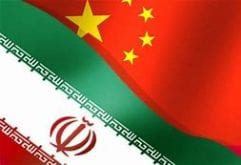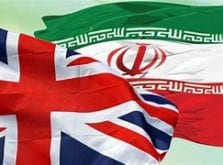Radiozamaneh – World Press Freedom Day arrives on May 3 in a time when journalists are under pressure throughout the world. Iran is also among one of the most difficult countries to be a journalist. The situation of press freedom in the world is “in decline”, and in Iran, in particular, it “is getting worse every day”, Reza Moini, the head of RSF’s Iran/Afghanistan desk told Zamaneh.

A placard reading: “Press Freedom, Human Rights, Justice” lays on the ground during a demonstration in support of WikiLeaks founder Julian Assange at Brandenburg Gate in Berlin on May 2, 2019. (Photo by John MACDOUGALL / AFP)
Apart from censorship and attacks on independent journalism, the number of journalists and media workers killed on the job rose again in 2018 and the killings have continued in the current year.
According to New York based Committee to Protect Journalist (CPJ), at least 10 journalists have been killed since the beginning of 2019. From the United Kingdom to Afghanistan, Mexico to Libya, journalists have lost lives on the job.
World Press Freedom in Decline
The 2019 World Press Freedom Index, reported annually by Reporters Without Borders (RSF), was published in late April. RSF describes the findings as “a cycle of fear”, showing that “an intense climate of fear has been triggered — one that is prejudicial to a safe reporting environment.”
Although Iran has dropped from 164th in 2018 to 170th in 2019, the state of journalism in the whole world is worrisome.
RSF Index “shows the worsening situation of the press freedom on a global scale and the decline of many countries towards lower scores”, Moini said.

Reza Moini, RSF’s Head for Iran/Afghanistan Desk
According to RSF indexing, which evaluates the state of press freedom in 180 countries since 2002, Norway, Finland and Sweden are at the top of the ranking for 2019.
On the lower end of the ranking, Turkmenistan and North Korea are at the 180th and 179th.
“Fake News” Against Independent Journalism
On a global scale, fake news has become a tool for authoritarian figures to attack the media.
And real fake news, observers believe, is helping those same authoritarian figures to pursue their political interests.
But at the same time, fake news refers to the popular belief, prior to its misuse by US President Donald Trump, that the wealthy and powerful elites have control over mass media by owning them and thus, media cannot “really” hold those elites accountable, working instead in their interests.
“One of the cures, one of the solutions is independent journalism”, the head of RSF’s Iran/Afghanistan Desk said, “and what really matters for us is fighting for independent journalism”.
“For example, the Brazilian president makes use of ‘fake news’ for partial propaganda. Or Mr. Trump and Ali Khamenei [Iranian Supreme Leader] as well use ‘fake news’ to marginalize independent journalism… Oligarchs who own media contribute to the worsening of press and reporting freedom”, Moini added.
An Alarming Situation in Iran
In its latest report on Iran’s Press Freedom Index, RSF refers to the Islamic Republic regime’s attacks on media inside and outside of the country. “The regime has extended its fight against media freedom beyond the country’s borders and also targets the international media”, reads the report.
Iranian journalists are seeing increased violence and fear of prison each year. According to RSF, “Iran has been one of the world’s most repressive countries for journalists for the past 40 years.”
“Since 2002 when we started this indexing, the situation of the press freedom in Iran has been worsening day by day”, Moini said, “and in each year that we published this report, Iran was stuck to the last 15”.
February 2019, around the 40th anniversary of the Iranian revolution, RSF unveiled a leaked Iranian Justice Department computer file.
“The file is a register of all the arrests, imprisonments and executions carried out by the Iranian authorities in the Tehran area over three decades,” RSF announced in a news conference in Paris.
Its following report explained that, based on the leak, the Iranian government arrested, imprisoned or executed at least 860 journalists in the three decades between 1979 and 2009. To hide this fact, the report added, the government has forged false documents and narratives; or a “governmental lie”, as Moini put it. According to him, Tehran has presented the world community with the same “governmental lie” for the last forty years.
Reporters and citizen-journalists whose names were on that file were prosecuted based on accusations such as: “action against national security”, “propaganda against the Islamic Republic”, “espionage”, “cooperation with foreign agents”, “blasphemy”, “insulting the supreme leader or the founder [Ruhollah Khomeini] of the Islamic Republic”. Based on the last two accusations, Iran’s judiciary imprisoned at least 57 journalists.
There are no independent media in Iran, although there are “private” ones, Moini said. According to him, Iran is a “front-runner” in limiting internet usage and maintaining exclusive and total control over print and digital media as well as web and social networks.
The head of RSF’s Iran/Afghanistan Desk criticizes and finds responsible all Iranian presidencies (reformist Mohammad Khatami’s second term, conservative Mahmoud Ahmadinejad, centrist Hasan Rouhani) in the last 17 years for their inaction towards the improvement of press freedom.
“[Iranian President] Mr. Rouhani never kept his promises; promises he made after popular protest movements in 2009 to a much-expecting audience of women and the youth”, Moini added.
- Listen to the interview with Reza Moini in Farsi here.
 Shabtabnews In this dark night, I have lost my way – Arise from a corner, oh you the star of guidance.
Shabtabnews In this dark night, I have lost my way – Arise from a corner, oh you the star of guidance.


